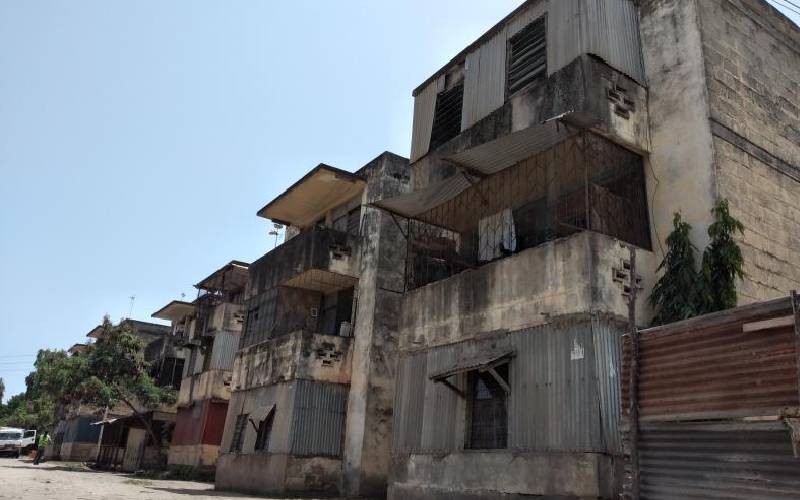×
The Standard e-Paper
Join Thousands Daily

A section of the Likoni Flats building's in Mombasa County that were built in 1973. [Robert Menza, Standard]
Residents of Likoni Flats estate in Mombasa have finally agreed to move out of their dilapidated houses to allow the county government to construct new ones in an Sh8 billion partnership with a private developer.